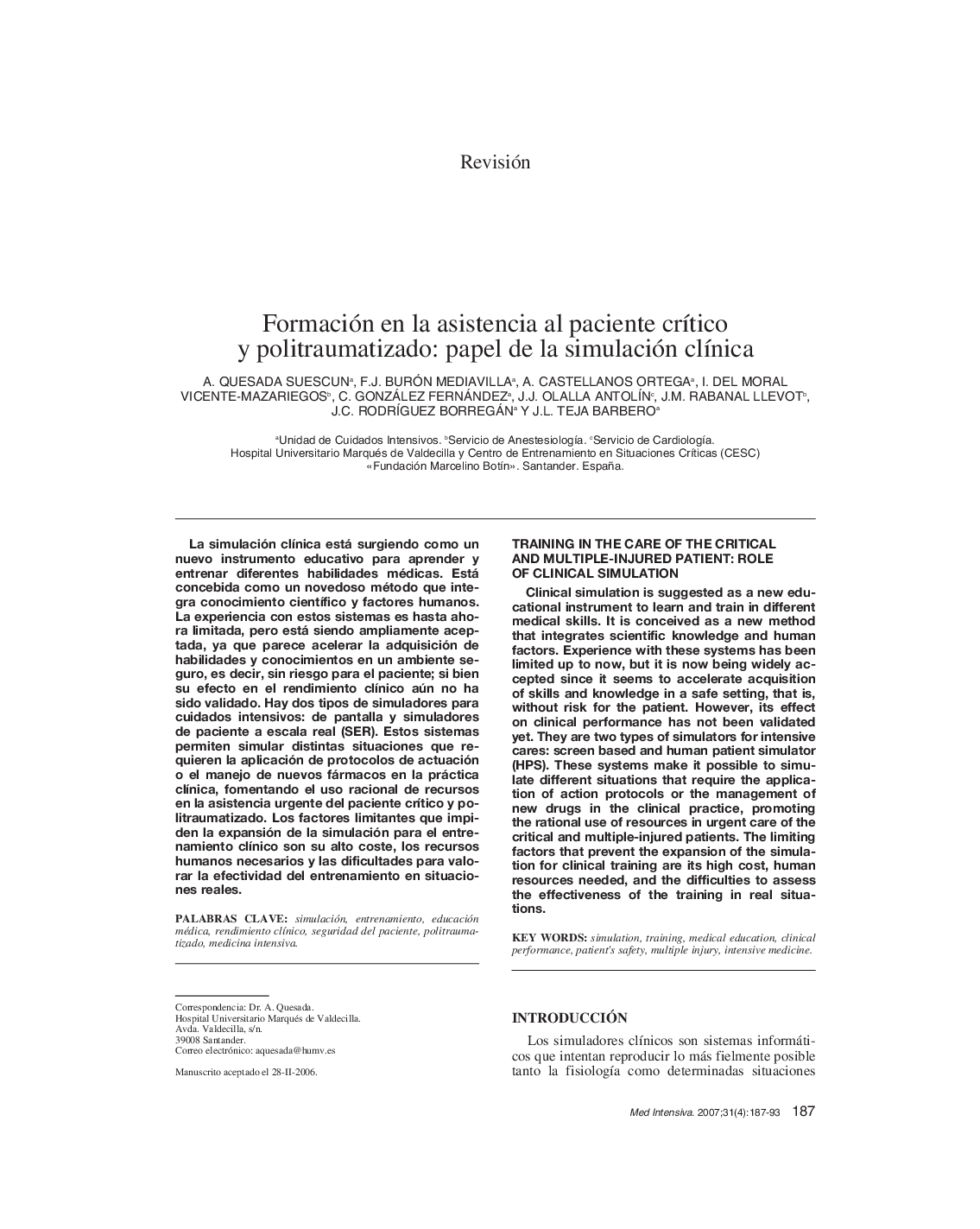| Article ID | Journal | Published Year | Pages | File Type |
|---|---|---|---|---|
| 3113219 | Medicina Intensiva | 2007 | 7 Pages |
Abstract
Clinical simulation is suggested as a new educational instrument to learn and train in different medical skills. It is conceived as a new method that integrates scientific knowledge and human factors. Experience with these systems has been limited up to now, but it is now being widely accepted since it seems to accelerate acquisition of skills and knowledge in a safe setting, that is, without risk for the patient. However, its effect on clinical performance has not been validated yet. They are two types of simulators for intensive cares: screen based and human patient simulator (HPS). These systems make it possible to simulate different situations that require the application of action protocols or the management of new drugs in the clinical practice, promoting the rational use of resources in urgent care of the critical and multiple-injured patients. The limiting factors that prevent the expansion of the simulation for clinical training are its high cost, human resources needed, and the difficulties to assess the effectiveness of the training in real situations.
Keywords
Related Topics
Health Sciences
Medicine and Dentistry
Critical Care and Intensive Care Medicine
Authors
A. Quesada Suescun, F.J. Burón Mediavilla, A. Castellanos Ortega, I. Del Moral Vicente-Mazariegos, C. González Fernández, J.J. Olalla AntolÃn, J.M. Rabanal Llevot, J.C. RodrÃguez Borregán, J.L. Teja Barbero,
